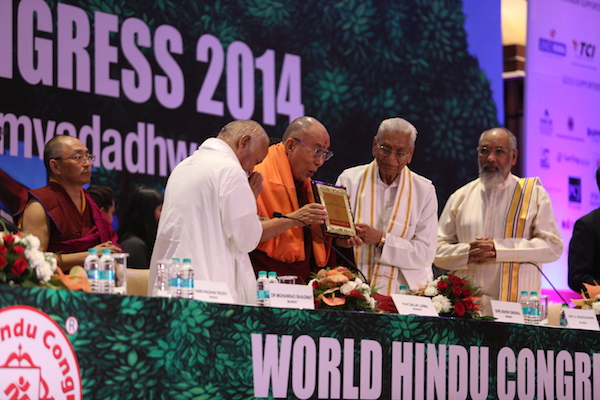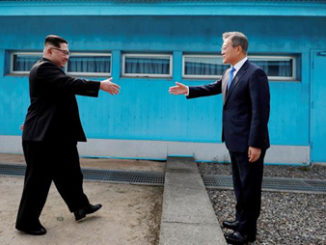
“There are contradictory views on what is “objectionable and hateful content”. In times of diminishing tolerance, anything “anti-establishment” quickly gets labelled as “objectionable”, “hate” or even at times “anti-national” content. The authorities do not refrain from gagging such content before it gets viral.”
Will societies be ever free from government controls? This question will continue to agitate those advocating for freedom of expression, a distant dream.

Censorship for many may be a crude way of curbing freedom of expression. It has a history longer than the print media. Movements supporting freedom of expression have been creating ripples here and there, by pricking the conscience of political bosses but debate continues unabated. Censorship has survived various religious, social and political struggles all over the globe as it has followed the free expressions of men and women like a shadow throughout history.
Social Researchers maintain that in ancient societies like Rome and China, censorship was considered a legitimate instrument for regulating the moral and political life of the people. The origin of the term censor can be traced to the office of censor established in Rome in 443 BC. In Rome, as in the ancient Greek communities, the ideal of good governance included shaping the character of the people. Hence censorship was regarded as an honorable task. In China, the first censorship law was introduced in 300 AD.
Historians reveal that the most famous case of censorship in ancient times was that of Socrates, sentenced to drink poison in 399 BC for his corruption of youth and his acknowledgement of unorthodox divinities.
It is fair to assume that Socrates was not the first person to be severely punished for violating the moral and political code of his time. This ancient view of censorship, as a benevolent task in the best interest of the public, is still upheld in many countries like China. This notion was advocated by the rulers of the erstwhile Soviet Union (USSR), who were responsible for the longest lasting and most extensive censorship era of the 20th Century.
If one looks back at recent Indian history, Punjab witnessed its first bout of censorship in 1919 when the Jallianwala Bagh massacre happened in Amritsar. Since then, Censorship became a trend with the rulers in the border State of Punjab that witnessed “gagging of media” again in 80s following Operation Bluestar and the anti-Sikh riots in Delhi and elsewhere following the assassination of the then Prime Minister Indira Gandhi. But digital censorship is something new to the State, especially when an artiste-turned Chief Minister is gagging a fellow artiste for her narration of an episode that shook not only Punjab but the entire world.
Debate over its morality and legality notwithstanding, it has picked momentum following the Punjab Government’s action in getting the “Letter to CM” song by Jenny Johal blocked from YouTube.
Though widely condemned by both political and social organizations, it appears to be in continuation of similar steps taken by the Union and some State governments from time to time to check “ objectionable or hate content” dissemination on social media channels. There are contradictory views on what is “objectionable and hateful content”. In times of diminishing tolerance, anything “anti-establishment” quickly gets labelled as “objectionable”, “hate” or even at times “anti-national” content. The authorities do not refrain from gagging such content before it gets viral.
It has become a common tool for the State or authorities to block or ban social media at times of conflicts, agitations or anti-government agitations. It is why the most animated debate has been on the ways and means the States and big monopoly houses put their money and muscle power to censor digital content.
Filmmaker Vikramaditya Motwane was recently quoted in media saying “Censorship is a stupid thing. There should be certification, and not censorship. People are smart enough to understand that if a film is meant for kids, then kids will watch it and if it is meant for adults, only adults will watch it. I have not understood till date why we censor adult films. If someone over 18 can get married, produce children, drive cars, why can’t they watch a movie?” he said.
He is the showrunner of the upcoming second season of Sacred Games, which has been widely applauded in its season one, but also been noted for its uncompromised content related to nudity, violence and language.
Censorship has spread its tentacles beyond these oft-talked subjects. Focus of late has been on “political censorship” or censoring digital content that does not meet approval of the political bosses who find their hands tied at their backs in promulgating various laws to prohibit the content from being circulated in territories where their writ runs.
What about the reach beyond the geographical boundaries?
Blocking Internet or major social media channels like Facebook, TikTok, Instagram, twitter and others for variable periods may be a short-term relief for limiting the reach of “objectionable content”. Internet or information highways have made the archaic Censorship laws irrelevant. Countries like China have been on forefront on banning various social media channels. India and Canada are not far behind. In June India’s ministry of electronics and information technology imposed a permanent ban on video app TikTok and 58 other Chinese apps. Though the companies were given a chance to explain their position on compliance with privacy and security requirements, yet the Government was not satisfied with the explanations.
When the final permanent ban orders were issued, it was stated that the apps were “prejudicial to sovereignty and integrity of India, defense of India, security of state and public order.”
The Senate in Canada has before it Bill C-11 for the final consent.
When Heritage Minister Pablo Rodriquez first tabled Bill C-11, the Trudeau government’s online censorship bill, the primary rationale he gave for crafting the legislation was to promote the interests of Canadian content creators.
He was quoted saying that the Bill C-11 “will help make sure that our cultural sector works for Canadians and supports the next generation of artists and creators,” Rodriguez said.
The Trudeau government wants Canadians to think that this bill will simply make Canadian content more accessible and boost the online presence of Canadian artists. Content creators, however, debunk Government’s claim.
For many critics of the minority Liberal government, Bill C-11 has been a bad bill. If passed, it would invade Canadians’ privacy and lessen their ability as citizens to hold the government to account by influencing what they can say and see online. Will societies be ever free from government controls? This question will continue to agitate those advocating for freedom of expression, a distant dream.
(Prabhjot Singh is a veteran journalist with over three decades of experience covering a wide spectrum of subjects and stories. He has covered Punjab and Sikh affairs for more than three decades besides covering seven Olympics and several major sporting events and hosting TV shows. For more in-depth analysis please visit probingeye.com or follow him on Twitter.com/probingeye)





Be the first to comment